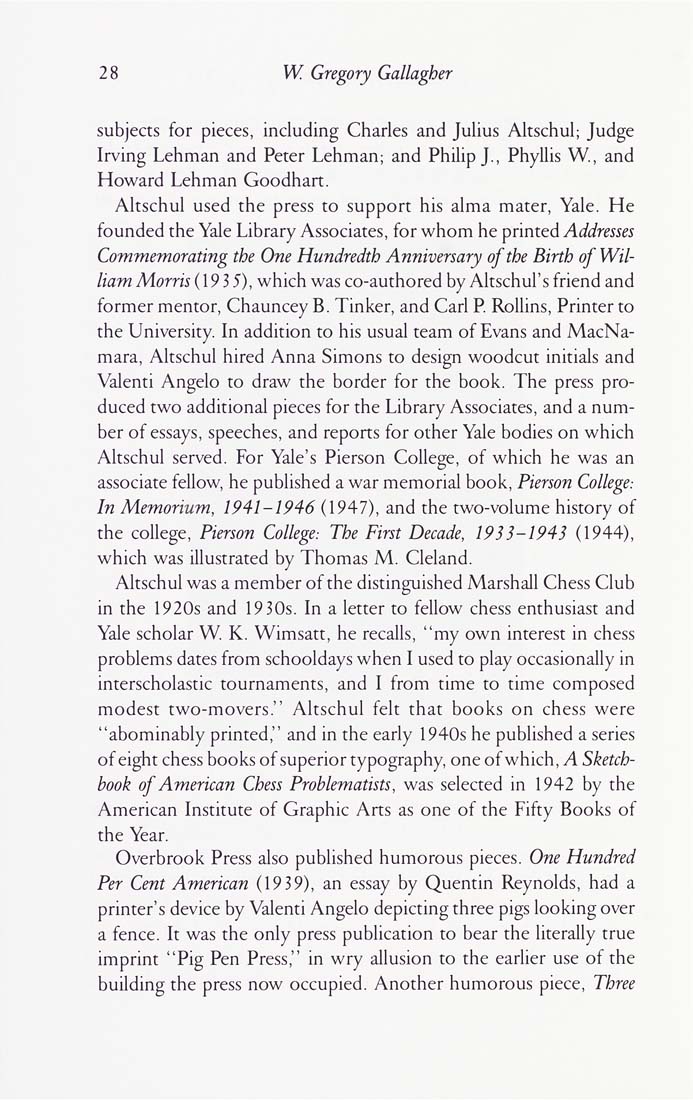Columbia Library columns (v.42(1992Nov-1993May))
(New York : Friends of the Columbia Libraries. )
|
||
|
|
|
|
| v.42,no.3(1993:May): Page 28 |

28 W Gregory Gallagher subjects for pieces, including Charles and Julius Altschul; Judge Irving Lehman and Peter Lehman; and Philip J., Phyllis W, and Howard Lehman Goodhart. Altschul used the press to support his alma mater, Yale. He founded the Yale Library Associates, for whom he printed Addresses Commemorating the One Hundredth Anniversary of the Birth of Wil¬ liam Morris (\9'i 5), which was co-authored by Akschul's friend and former mentor, Chauncey B. Tinker, and Carl P. Rollins, Printer to the University. In addition to his usual team of Evans and MacNa¬ mara, Altschul hired Anna Simons to design woodcut initials and Valenti Angelo to draw the border for the book. The press pro¬ duced two additional pieces for the Library Associates, and a num¬ ber of essays, speeches, and reports for other Yale bodies on which Altschul served. For Yale's Pierson College, of which he was an associate fellow, he published a war memorial book, Pierson College: In Memorium, 1941-1946 (1947), and the two-volume history of the college, Pierson College: The First Decade, 19?}-194i (1944), which was illustrated by Thomas M. Cleland. Altschul was a member of the distinguished Marshall Chess Club in the 1920s and 1930s. In a letter to fellow chess enthusiast and Yale scholar W K. Wimsatt, he recalls, "my own interest in chess problems dates from schooldays when I used to play occasionally in interscholastic tournaments, and I from time to time composed modest two-movers." Altschul felt that books on chess were "abominably printed," and in the early 1940s he published a series of eight chess books of superior typography, one of which, A Sketch¬ book of American Chess Problematists, was selected in 1942 by the American Institute of Graphic Arts as one of the Fifty Books of the Year. Overbrook Press also published humorous pieces. One Hundred Per Cent American (1939), an essay by Quentin Reynolds, had a printer's device by Valenti Angelo depicting three pigs looking over a fence. It was the only press publication to bear the Ikerally true imprint "Pig Pen Press," in wry aflusion to the earlier use of the building the press now occupied. Another humorous piece. Three |
| v.42,no.3(1993:May): Page 28 |







